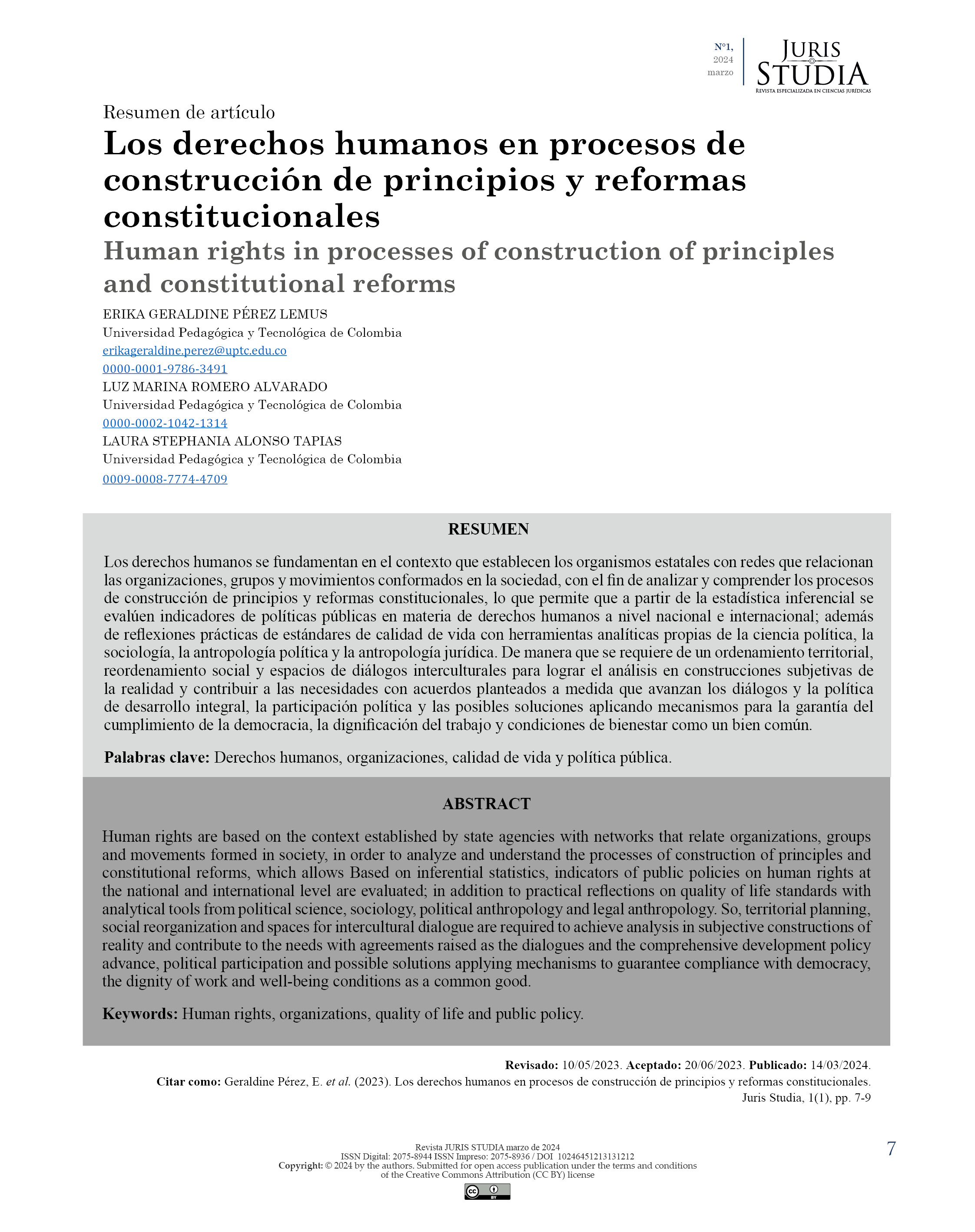Human Rights in Principle-Building and Constitutional Reforms
DOI:
https://doi.org/10.52428/12345678.v1i1.1082Keywords:
Human rightsAbstract
Human rights are based on the context established by State agencies with networks that relate the organizations, groups and movements formed in society, in order to analyze and understand the processes of construction of constitutional principles and reforms, which allows inferential statistics to evaluate indicators of public policies in the field of human rights at the national and international levels; as well as practical reflections on this Quality of life standards with analytical tools from political science, sociology, political anthropology and legal anthropology. Thus, territorial planning, social reordering and spaces for intercultural dialogues are required to achieve the analysis of subjective constructions of reality and to contribute to the needs with agreements raised as the dialogues and the policy of integral development, political participation and development advance possible solutions by applying mechanisms to guarantee the fulfillment of democracy, the dignification of work and conditions of well-being as a common good.

Downloads
Published
How to Cite
Issue
Section
License
Copyright (c) 2024 ERIKA GERALDINE PÉREZ LEMUS, LUZ MARINA ROMERO ALVARADO, LAURA STEPHANIA ALONSO TAPIAS

This work is licensed under a Creative Commons Attribution 4.0 International License.
Authors who publish with this journal agree to the following terms:
- Authors retain copyright and grant the journal right of first publication with the work simultaneously licensed under a Creative Commons Attribution License 4.0 that allows others to share the work with an acknowledgement of the work's authorship and initial publication in this journal.
- Authors are able to enter into separate, additional contractual arrangements for the non-exclusive distribution of the journal's published version of the work (e.g., post it to an institutional repository or publish it in a book), with an acknowledgement of its initial publication in this journal.
- Authors are permitted and encouraged to post their work online (e.g., in institutional repositories or on their website) prior to and during the submission process, as it can lead to productive exchanges, as well as earlier and greater citation of published work.










